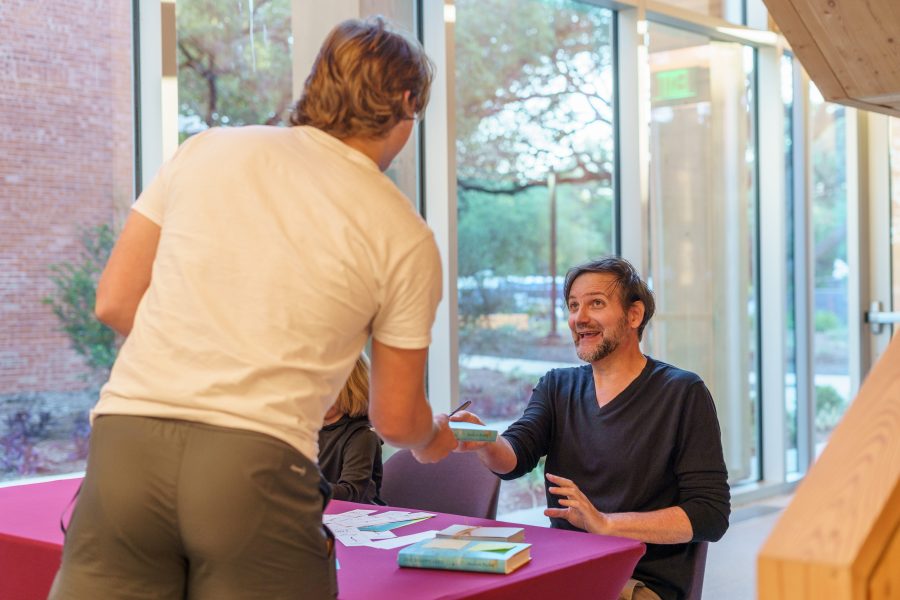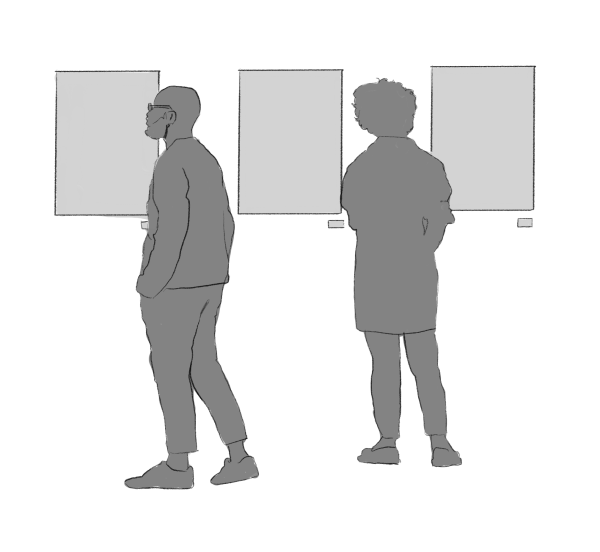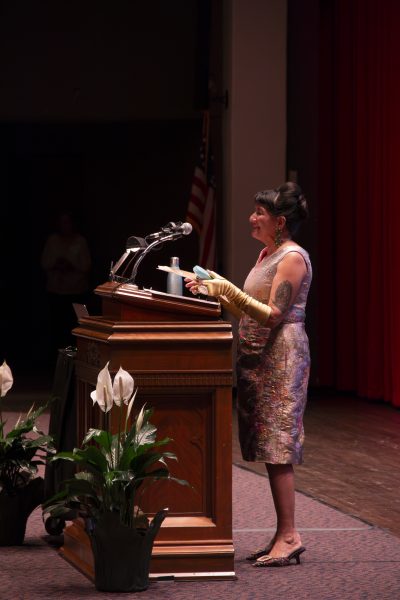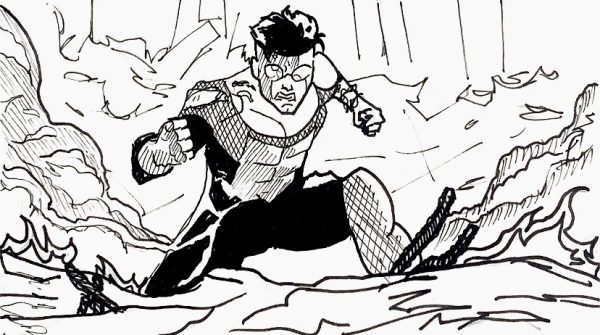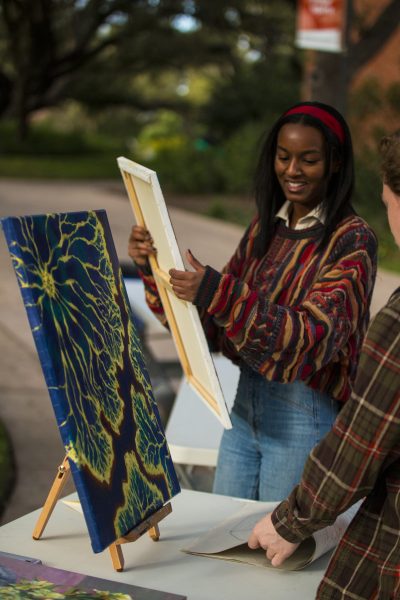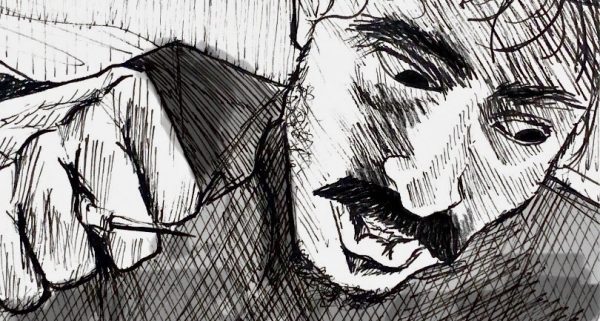Finding inspiration in the ordinary: “The Disappeared”
Trinity professor Andrew Porter shares insights into the creative process from his new book
Dr. Andrew Porter signed copies at his book launch on Tuesday night.
In his latest book, “The Disappeared,” Andrew Porter, professor of English and director of the creative writing program at Trinity, plunges readers into the vanishings in the cities of San Antonio and Austin. Using longer stories and flash fiction, Porter works through literal and metaphorical disappearances, uncovering themes of loss and change.
Caroline Wolff, senior communication major and creative writing, linguistics and English triple-minor, has worked with Porter in the creative writing department. Wolff noted that, despite her personal familiarity with his writing, she is certain that it has something to offer for anyone.
“His fiction is really approachable and immersive. He writes about the intricacies of ordinary life and tackles topics like love, grief and periods of transition in an honest, relatable way,” Wolff said.
Porter shared that his inspiration for the stories compiled in “The Disappeared” stemmed from his personal experiences over the changing landscape of his life.
“I think all fiction writers pull from things they observe, things in their life. Every character and situation is a composite of different people and experiences,” Porter said. “I started writing these stories not long after my children were born, and it was a period where I was trying to reconcile this new life I was in.”
Porter elaborated on the process of compiling “The Disappeared,” noting that he initially wrote the stories without a clear idea of how they would be connected.
“Once I wrote a few of them, I began to sense that there was something in all of the characters’ lives that had disappeared, and with the remaining stories, I had that in mind,” Porter said. “Halfway through, I began to recognize that this theme of loss was something I would accidentally write, and it then became something I was intentionally writing.”
As Porter’s writing and teaching become increasingly intertwined, students benefit more from his experience. Wolff spoke highly of Porter’s ability to juggle his creative endeavors while helping students grow in the classroom.
“I find it extremely admirable that professors are able to balance their teaching with their creative work,” said Wolff. “I think it speaks volumes about how devoted and exceptional our creative writing faculty is at Trinity. It’s inspiring to me as someone whose post-graduation plans entail pursuing a full-time career alongside my creative ventures.”
Sydney Rhodes, senior psychology and communication double-major with a minor in creative writing, echoed Wolff’s sentiment, remarking on the value of having mentors like Porter.
“I think it’s wonderful to have professors who are actually working and continuing to develop their own writing,” Rhodes said. “It is really encouraging for me as a creative student. I’m learning from someone who knows what they’re talking about. It gives a different perspective of the scale and work that professors do even as they’re teaching you.”
Rhodes’ perspective highlights Porter’s ability to use his expertise in the field to also develop his personal creative process. Porter has been able to develop complex and meaningful works of fiction. The insights into his creative process shed light on how his writing develops from the seed of an idea into something more.
“Fiction has always arrived in kind of a mysterious way for me,” Porter said. “I never sit down with an idea. Usually, the story grows from something I’m visualizing about a setting or character and from that comes the first sentence. I never have any idea where it’s going or what it’s about.”
As a writer and professor, Porter has found ways to balance aspects of his life to further help his creative work. Beyond his work on the collections, Porter shared that he has received a lot of help from external support systems, even drawing inspiration from his classroom.
“[T]eaching and writing have started to go hand in hand. Some of my published stories grew out of things I wrote in class. We talk about things I’m working through in my own fiction and the general craft and I find that my feelings are influenced by conversations I have with my students or their work,” Porter said. “Many of the best conversations I have about fiction writing in my life come from ones I have with my students.”
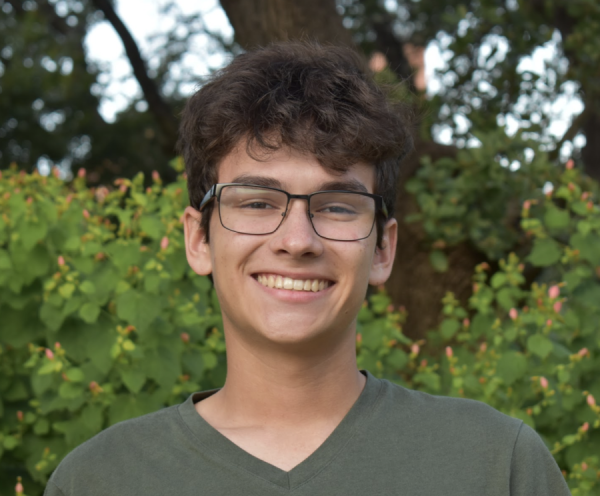
My name is Sam (he/him) and I'm a photographer here with the Trinitonian. I'm a senior Communications and German double major from Austin, Texas, and...

